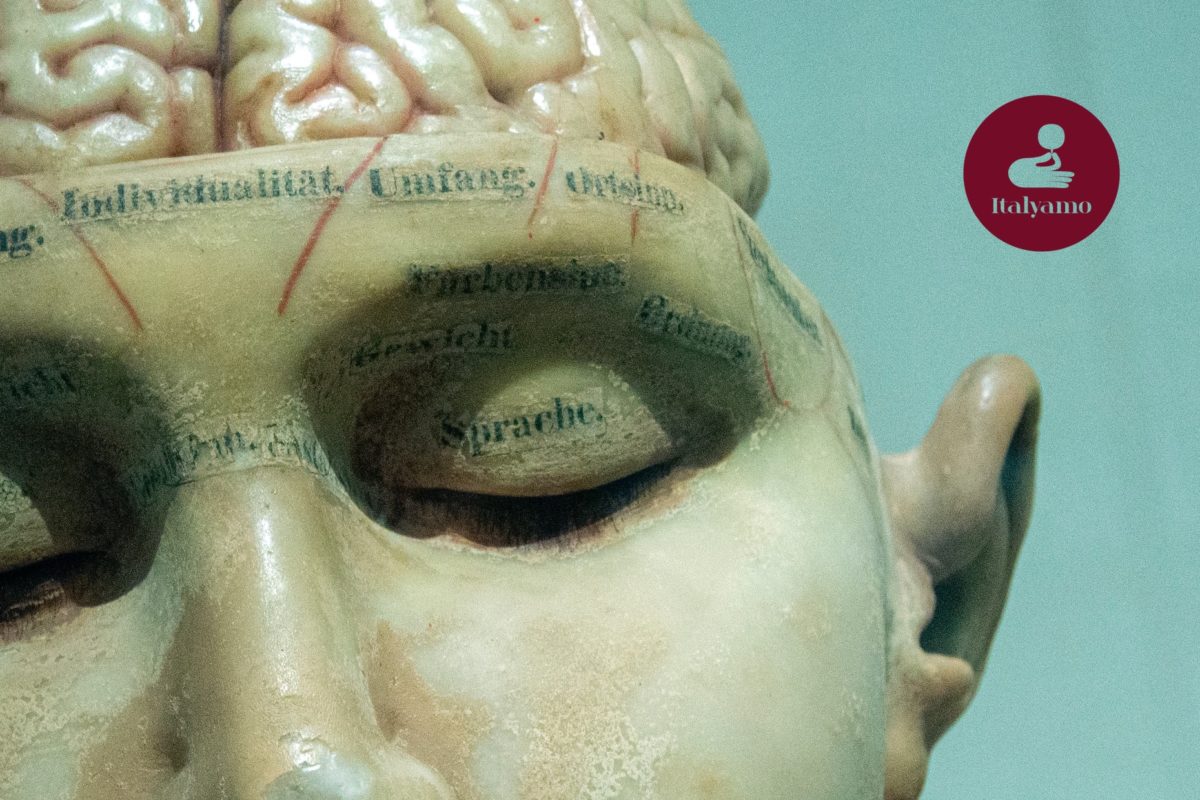As Cooper has written in 1998, “Since idiomatic expressions are so frequently encountered in both spoken and written discourse, they require special attention in language programs and should not be relegated to a position of secondary importance in the curriculum”. Because of this, Italyamo has a particular attention to the teaching and learning of idiomatic expressions. So, have you got brains? “Avere cervello” and other idiomatic expressions.
Body parts – Have you got brains?
If an Italian friend tells you “Non hai cuore ma hai cervello!”, is it good or bad? Or as soon as you have won the game, he says: “Ma che culo!”, was he speaking about your butt? Avere cervello, culo, cuore, fegato, naso, orecchio, polso are very useful expressions we use in Italian! First of all, you will familiarize yourself with the meaning and usage of each idiom. Afterwards, you will know the history of some of the expressions. Learning to use common idioms and expressions will make your Italian sound more native, so it’s a good idea to master some of these expressions.
Body parts – Avere cervello!
When you use “avere cervello/brain”, you are saying that someone means is smart. Whereas, the expression “avere culo/ass” is used to say that someone is lucky, but attention it is a borderline expression so you should use it in the right context. What about “avere cuore/heart”? It means to be generous. If you want to say that a friend is brave, you will use “avere fegato/liver”. Finally, “avere naso/nose” means to have a good instinct, “avere orecchio/ear” to have a good ear for music, and “avere polso/wrist” to keep a firm hand. Try to work on them connecting to this link.
Body parts- Why?
For example, “avere culo” was born from the fact that young people with beautiful asses were in great demand by the powerful men of ancient Rome who covered them with gifts to have sex with them. So having a nice ass for a guy was a sign of an easier life than one’s peers. Whereas, “avere fegato” comes from the fact that the liver has always been a symbol of courage and physical strength.Just think of the torment of Prometheus or the fact that in ancient Rome the liver was used to read the future.
And what idiomatic expression for body parts would you call yourself?


